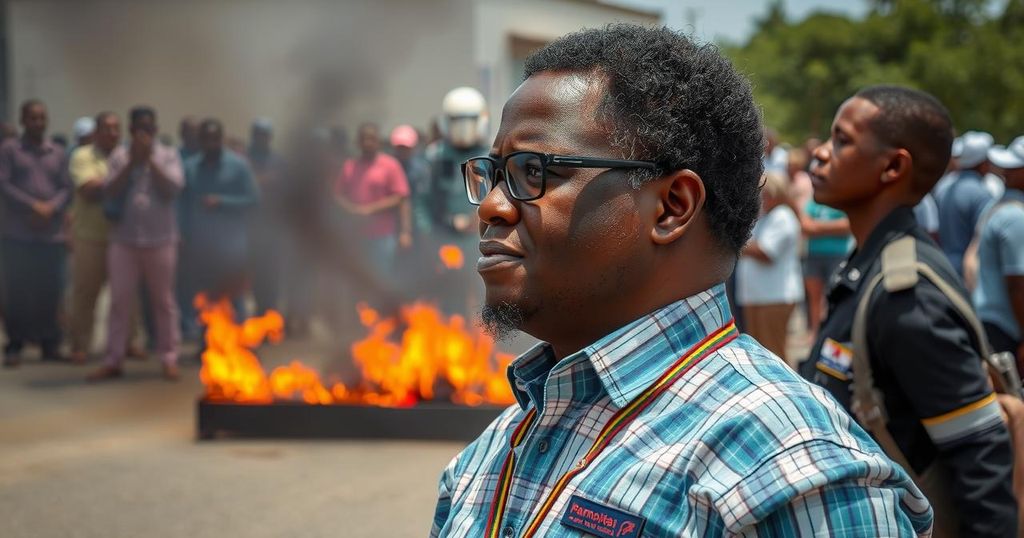Mozambique Court Affirms Frelimo’s Election Win Amid Ongoing Protests
Mozambique’s highest court has upheld the ruling Frelimo party’s election victory, leading to renewed protests that have resulted in over 100 deaths. The court found that despite electoral irregularities, they did not significantly alter the results, confirming Daniel Chapo’s win. Opposition leader Venâncio Mondlane continues to contest the outcome and has rallied for further protests, indicating a deepening political crisis in the nation.
The Constitutional Council of Mozambique has confirmed the ruling Frelimo party’s victory in the presidential elections held on October 9, 2024. The court’s ruling came amidst widespread protests, during which over 100 individuals lost their lives due to clashes between demonstrators and security forces. The court acknowledged irregularities during the election but asserted that they did not significantly impact the overall results, which indicated that Daniel Chapo received 65.17% of the votes, while opposition candidate Venâncio Mondlane garnered 24.29%. Following the court’s decision, Mondlane’s supporters took to the streets again, signaling their discontent with the electoral process and calling for continued protests. Mondlane has accused Frelimo of electoral fraud and has warned of potential chaos if the victory was upheld.
Meanwhile, the political atmosphere remains tense, with a significant presence of law enforcement in the capital, Maputo, as citizens express their grievances over the election outcome. The Frelimo party has maintained its longstanding dominance in Mozambique, which it has governed for nearly six decades. The protests reflect a deepening discontent among large sections of the populace, particularly among opposition supporters, emphasizing the ongoing struggle for democratic reforms in the nation.
The recent election has further polarized the political landscape in Mozambique, leading many citizens to argue for change and more transparent electoral processes. The fear of escalating violence and rising tensions between opposing factions continues to loom as the country navigates this challenging political landscape.
Mozambique has been governed by the Frelimo party since its independence in 1975, making it one of Africa’s longest-serving political regimes. The opposition party, known as Renamo, has historically contested Frelimo’s authority, leading to a cycle of electoral disputes and civil unrest. The recent October elections marked a crucial moment, as many citizens sought to challenge Frelimo’s prolonged grip on power. However, amidst accusations of fraud and systemic irregularities, the ruling party emerged victorious yet again, sparking protests that underscored the populace’s diminishing trust in the electoral process and governance.
In summary, the ruling of Mozambique’s Constitutional Council to uphold the victory of Frelimo amid widespread protests highlights a growing divide in the nation’s political fabric. The loss of life during the protests, coupled with accusations of electoral fraud from the opposition, raises significant concerns about governance and civil rights within the country. As the Frelimo party continues its lengthy rule, the calls for change and accountability among the citizens of Mozambique remain pressing and urgent.
Original Source: apnews.com




Post Comment